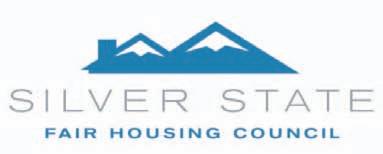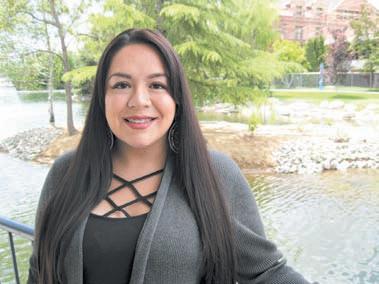
10 minute read
NEws
from June 13, 2019
Saving Speech
In its long history, the University of Nevada, Reno, has never given instruction in the local language. But that is changing. Northern Paiute is now a listed language in the language department. “For years I was asking, ‘What do I need to do to get this class started?’ … Every time enrollment came around, I would ask,” said Christina Thomas, who grew up on the Pyramid Lake Reservation. She never really encountered objections at UNR and, in fact, found considerable support, but it takes time to mount a new course of study. Now that she has succeeded after four years of effort, Thomas won’t be at UNR to take the class herself. She has just graduated and is going away to graduate school.
Advertisement
“I’m proficient, but I’m not fluent,” she said.
The course will be taught by a tribal elder. There has been some interest from people in other states who asked if the instruction can be taken online.
During a special census of the Pyramid Lake Reservation in 1997, within that single community there were found to be 60-plus fluent speakers of Northern Paiute, and, at the time, it was predicted that—given the age of the speakers—in 20 years the language would be extinct. Among all Paiutes, the pictures is similar.
“In 2008, there was a study that was conducted, and, in that time, there was estimated less than 700 fluent speakers—and those people were over the age of 65,” Thomas said. “And that was in 2008, so I would estimate that there is probably less than half of that. In our area, we’re getting down into the very few numbers of people that can speak fluently. Because they are over the age of 65, a lot of these people are elders and they’re passing. And we’re still trying to get our language, as best we can, written down because it was orally handed down, so we don’t have a ton of materials. So that’s why we’re kind of in the predicament that we’re in, trying to create and record elders as best we can because they’re passing away before we can get everything documented.”
For a language that once had no written form, there may now be an embarrassment of riches. Long established Wycliffe Bible Translators, which produced a Northern Paiute New Testament, Te Naa Besa Unnepu developed a written Northern Paiute form that is used in a Reno Sparks Indian Colony language program, a great asset at the time it was created. But the Wycliffe system tends to conflict in its vowels with a system used in the Northern Paiute–Bannock Dictionary compiled by three University of Nevada, Reno scholars and published by the University of Utah. Further, Thomas believes the International Phonetic Alphabet would be preferable, because its form makes clear how a language is spoken.
“We need to pull away from [other systems] and … learn to write IPA because that will always make the same sound no matter,” she said. “If a linguist read it, he would be able to read it correctly. … The tribes and people are trying to take one writing system that’s consistent so that, in the future, someone wouldn’t pick it up and not know how to read it.” In December 2016, Nevada’s presidential electors met in the Nevada capitol to cast their votes.

PHOTO/ERIC MARKS
Voters’ choice?
Governor says no to majority decision
gov. Steve Sisolak, in vetoing assembly Bill 186, has reduced the influence of Nevada, slowed a national movement for majority rule and taken aim directly at his own Democratic Party.
So say many of his critics in reaction to the veto. The measure would have pledged Nevada’s presidential elector votes to the winner of the national popular vote. Its supporters wanted Nevada to join an informal compact of states making similar pledges, the compact becoming effective when states representing 270 electoral votes join.
Reaction to the veto has been strong. Las Vegas’s newspapers split in their editorials, the Sun denouncing the veto, the Review-Journal praising it. Right wing Nevada columnist Thomas Mitchell lauded the veto. Epoch Times, an arm of the Falun Gong movement, claimed the veto damaged the popular vote effort— “Democratic Nevada Governor Halts National Popular Vote Momentum.” But that interpretation seemed to be countered by Oregon’s action six days later joining the compact. The headline on the website of New York magazine was, “Nevada Governor Vetoes National Popular Vote Bill for Some Stupid Reason.”
There have been five instances of unelected presidents in U.S. history, two of them in the past two decades. Winners Andrew Jackson in 1824, Samuel Tilden in 1876, Grover Cleveland in 1988, Al Gore in 2000, and Hillary Clinton in 2016 all won their elections only to see presidential electors appoint their opponents as president. All five were Democrats. No other party has ever been victimized in that fashion. (The term electoral college is inaccurate. The electors are forbidden by the U.S. Constitution to act collegially.)
In his veto message, Sisolak seemed to say that it is the right of individual states to up-end the nation’s verdict, but a state should not ignore its own state electorate’s choice in order to support the national electorate’s choice:
“Pursuant to the terms of the agreement [compact], if candidates for President and Vice President were to win the national popular vote, but lose the popular vote in Nevada, the State’s electors would be bound to disregard the expressed will of the State’s electorate and to cast electoral votes in coordination with other signatory states in support of candidates who have won the national popular vote. As governor of Nevada, it is my view that this arrangement is not in the State’s best interests.
“While reasonable people may disagree as to whether the national popular vote should dictate the ultimate winners of presidential and vice presidential electoral contests, this is a notion that does not reflect the delicately balanced system of government that issued from the larger debate at the Constitutional Convention of 1787 between supporters of the Virginia Plan and those of the New Jersey Plan, in which the interests of small states were pitted against the interests of large states. The result was a compromise government that tempered the proposal outlined by James Madison’s Virginia Plan, favoring large states by granting vast powers to a new federal government, with the proposal forwarded by New Jersey delegate William Paterson, favoring small states by allowing each state to have one vote in Congress, regardless of the state’s population (the New Jersey Plan).
“The agreement, which, when enacted, would require a signatory small state’s electoral delegates to vote in support of the candidates for President and Vice President who win the national popular vote, could leave a sparsely populated Western state like Nevada with a greatly diminished voice in the outcome of national electoral contests.”
The Virginia Plan and the New Jersey Plan dealt with legislative apportionment, not presidential appointment. They were blended by the constitutional convention to satisfy the slave states, which happened to be the smaller states, resulting in a two-house Congress with the states being proportionally represented in the House and each state being represented equally in the Senate. This arrangement would not be undone if the compact takes effect.
Sisolak did not address some of the arguments made in the Nevada Legislature and elsewhere on the pitfalls of presidential electors.
His argument that small states are aided by the elector system was once common but has declined in recent decades as legal and political scholars have examined its actual functioning. The system is now so widely regarded as victimizing small states that in 1966, 12 small states, led by Delaware, brought suit to try to get the winner-take-all feature of the elector system declared unconstitutional. In deciding what state to target, the small-state attorneys general chose New York, though any large state could have served the purpose.
Sisolak’s citation of the actions of the constitutional convention seems to contend that the current presidential electors system is the one the founders created. It is not. They created one system, and in subsequent decades and centuries, the political parties created another one. And that’s the one we use. • Among other things, the founders did not want political parties—“factions,”
as they were then called—to be involved with the electors system. Legislators in state legislatures who were members of political parties later turned the electors system over to the parties, which now choose their elector candidates at state party conventions. • The founders also wanted the electors to be free agents, so that if the voters chose an unfit candidate, they would feel free to choose a different president. Partisan legislators, including Nevada’s, later passed state laws requiring that electors be pledged and bound to their political parties. • Nor did the founders want winner-take-all distribution of electors. “The [proportional] district mode was mostly, if not exclusively in view when the Constitution was framed and adopted; & was exchanged for the general ticket [winner-take-all],” wrote James Madison when state legislatures started adding winnertake-all to the founders’ system. All states except Nebraska and Maine now overlay this process atop the electors system.
Though Sisolak argues that Nevada, under the proposed compact, would have “a greatly diminished voice in the outcome of national electoral contests,” he does not explain how.
Because a state’s number of electoral votes is based on the number of its member of Congress, a built-in bias resulting from the two Senate seats given to each state favors small
states. But the effect of that bias can be tracked, and scholars have said that bias did not elect Donald Trump in 2016. Presidential candidates, at least in the current political climate, devote their heaviest effort not to large or small states but to whichever states are gettable. Since the era of extreme partisan polarization began in the Gingrich period, states have become locked up for one party or the other early in presidential campaigns.There are then usually about a dozen “swing “This arrangement is states” that are still up for grabs. Those are the ones that get the most attention from the not in the state’s presidential campaigns. best interests.” National Popular Vote, which supports the compact,
Gov. Steve Sisolak reports that “94 percent of the 2016 [presidential campaign] events (375 of the 399) were in 12 states.” As one of those battleground states, Nevada—which was still competitive—did rather well in that competition for attention, receiving 17 campaign visits, more than any other Western state except Colorado (19). If Nevada had not still been gettable, it would not have drawn so many candidate visits, no matter its electoral votes. The most populous state of all, California, received only one such visit because it was locked up early, even though it was the richest electoral vote prize. Ω
Biker folks visit
The Street Vibrations special event was back in town last week, and from all indications it still seems to rattle the casinos, though grateful for the business. There were lots of warning posters about not wearing gang colors, guns and such. Of course, those posters were often alongside posters advertising booze.

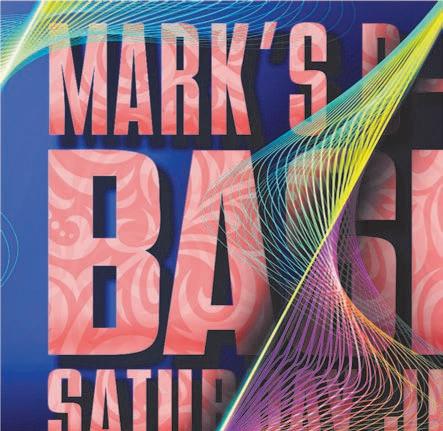

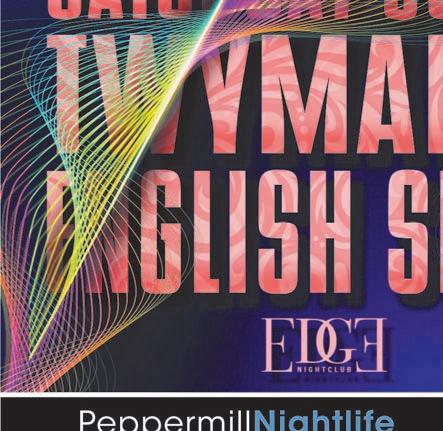
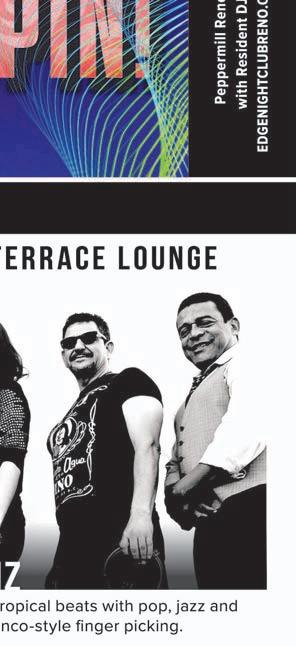
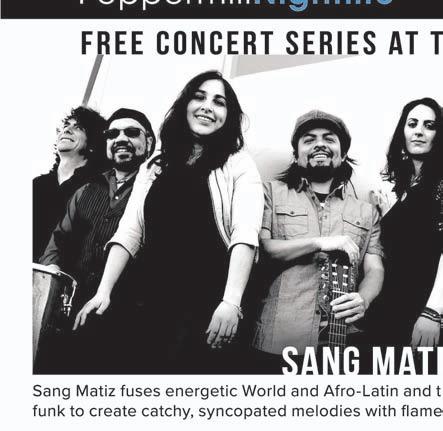
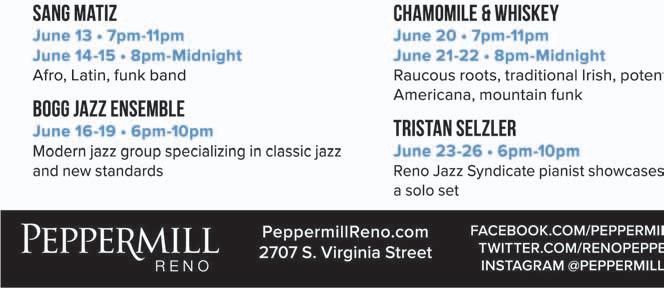
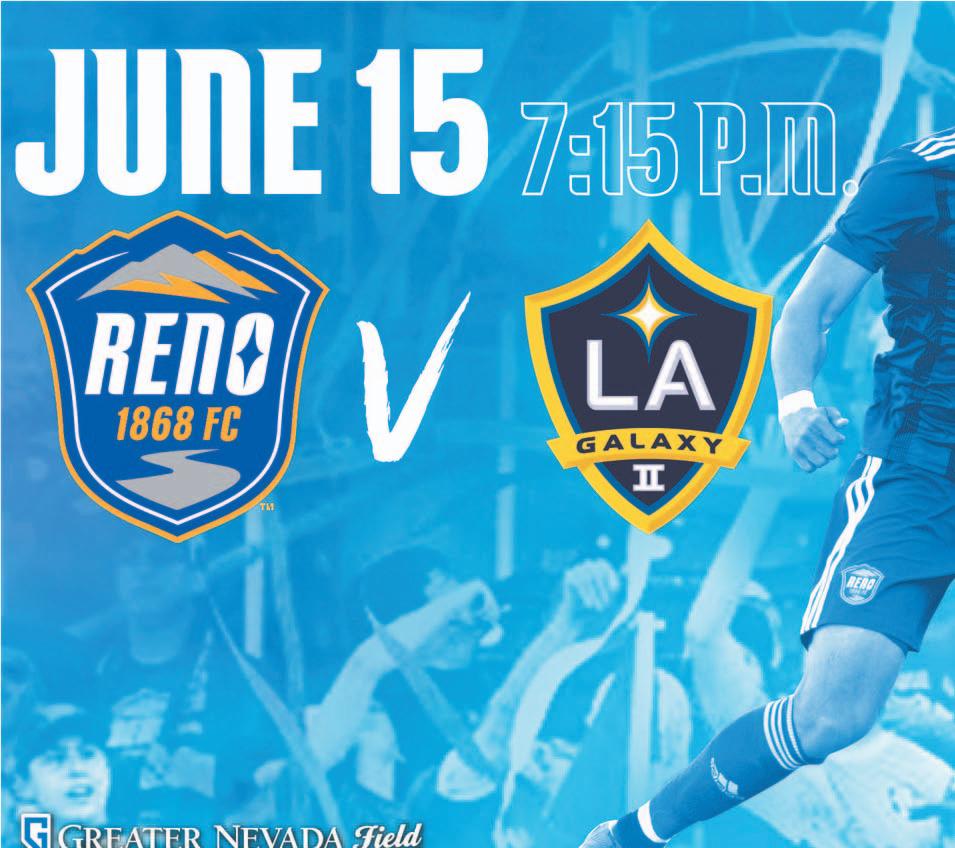

YOU HAVE THE RIGHT TO REASONABLE ACCOMMODATIONS
The federal Fair Housing Act prohibits discrimination because of race, color, religion, national origin, sex, family status or disability. The State of Nevada also includes protections for ancestry, sexual orientation and gender identity/expression.

People with disabilities have the right to request reasonable accommodations or modifications that will provide an equal opportunity to use and enjoy a dwelling. Examples include: ■ Waiving “pet” fees, deposits, and weight/breed restrictions for animals providing assistance/service related to a disability (including service, companion, emotional support animals) ■ Providing a reserved parking stall ■ Transferring from an upstairs unit to the ground floor ■ Installing a ramp (possibly at your expense)
There must be an identifiable relationship between the requested accommodation and the individual’s disability. Silver State Fair Housing Council is available to assist you in understanding and exercising your fair housing rights. For more information and assistance contact us: Northern NV: 775.324.0990 ■ Southern NV: 702.749.3288 888.585.8634 toll-free ■ Relay Nevada 711 FairHousing@ssfhc.org ■ www.ssfhc.org
